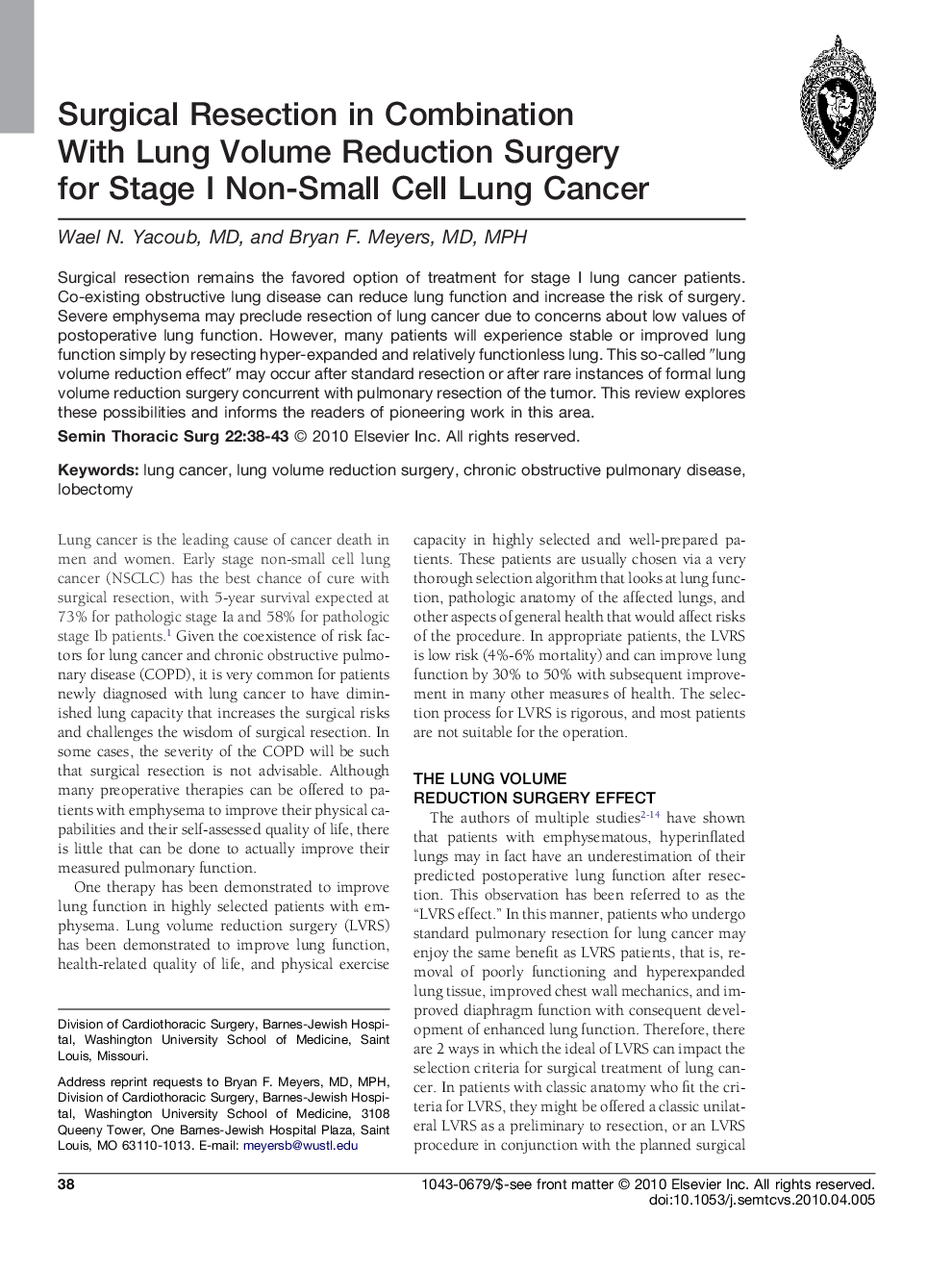| Article ID | Journal | Published Year | Pages | File Type |
|---|---|---|---|---|
| 3025496 | Seminars in Thoracic and Cardiovascular Surgery | 2010 | 6 Pages |
Abstract
Surgical resection remains the favored option of treatment for stage I lung cancer patients. Co-existing obstructive lung disease can reduce lung function and increase the risk of surgery. Severe emphysema may preclude resection of lung cancer due to concerns about low values of postoperative lung function. However, many patients will experience stable or improved lung function simply by resecting hyper-expanded and relatively functionless lung. This so-called “lung volume reduction effect” may occur after standard resection or after rare instances of formal lung volume reduction surgery concurrent with pulmonary resection of the tumor. This review explores these possibilities and informs the readers of pioneering work in this area.
Related Topics
Health Sciences
Medicine and Dentistry
Cardiology and Cardiovascular Medicine
Authors
Wael N. Yacoub, Bryan F. Meyers,
